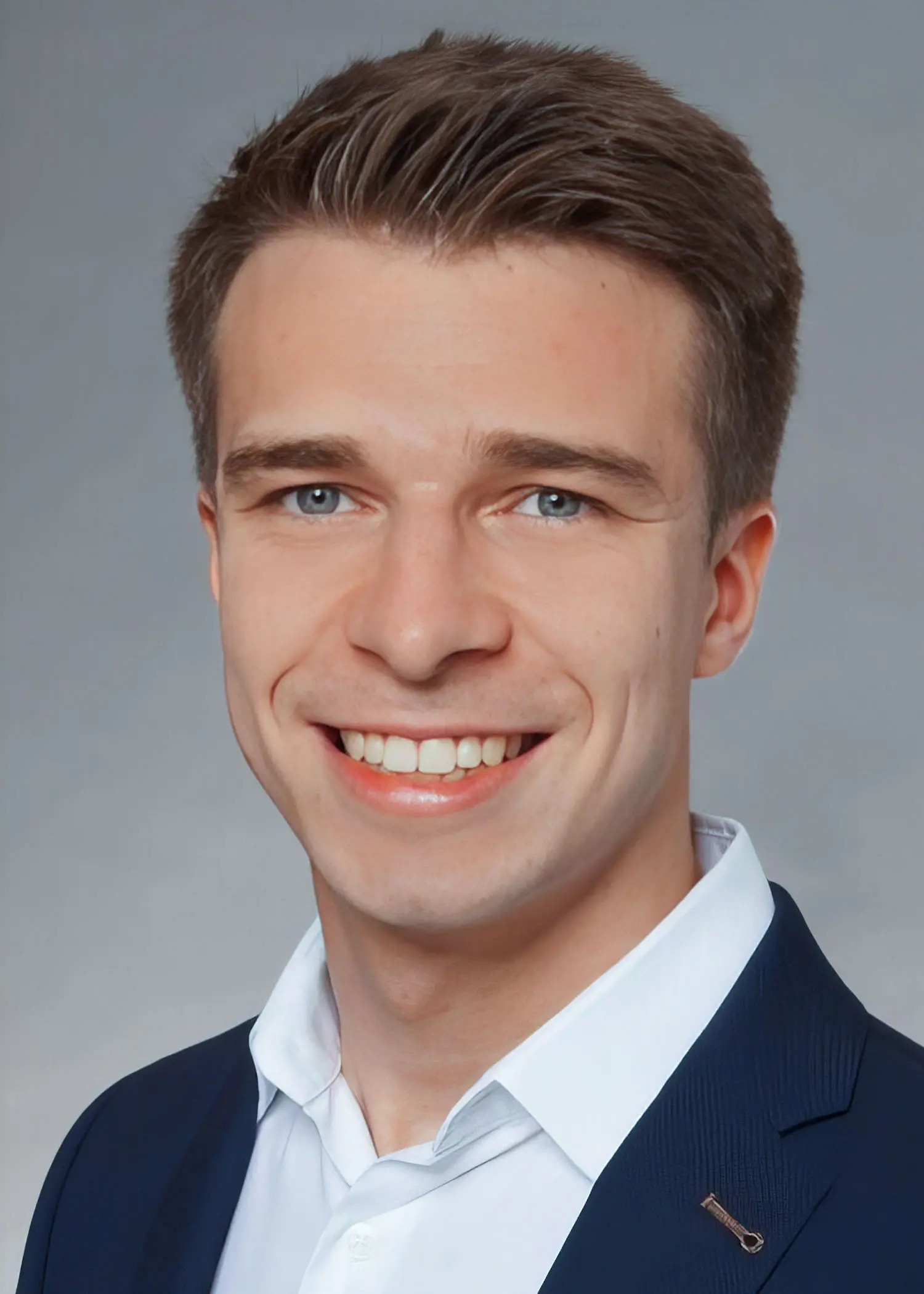Much like baking a cake, when making an alloy the recipe matters: Adding just a few percent of a metallic element to the mixture, or “baking” the alloy at different temperatures, can greatly change its properties. For example, this can make the difference between a strong, tough material and one that is brittle and fractures under stress.
 Sebastian Kube
Sebastian Kube
Metallurgists are always looking for new alloys that can withstand increasingly demanding engineering applications. A major challenge, however, lies in discovering the right recipes among the thousands of potential combinations and processing conditions. Testing just a few new alloys can take research groups years.
Sebastian Kube, who joins the Department of Materials Science and Engineering at the University of Wisconsin-Madison as an assistant professor in January 2024, is determined to accelerate the alloy discovery process. His lab will specialize in autonomous materials science, combining cutting-edge alloy preparation and testing techniques with automation, robotics and machine learning.
“Conventional metallurgical research is very time-consuming. Even pushing the limit, I have personally studied only about 50 alloys over the last two years,” Kube says. “For young, motivated scientists who want to rapidly design new materials and broadly explore overarching scientific questions, having to perform endless manual laboratory tasks is tedious and frustrating. To overcome this, we will automate and streamline such tasks to test new alloys in high-throughput. Then we can study 50 alloys in a week, or perhaps even 50 alloys in one day.”
Kube grew up in Germany, where he earned his bachelor’s degree from the University of Giessen. He then received his PhD in materials science from Yale University, followed by two years of postdoctoral research at the University of California, Santa Barbara. He has built an expertise across a number of complex alloy classes and phenomena to which he hopes to apply his accelerated research strategies.
One such class is structural alloys for extreme environments, especially high temperatures and mechanical stresses, found in jet engines, turbines and reactors. Currently, most high- temperature alloys can operate up to 1,100 degrees Celsius. However, the demand for higher temperature performance beyond 1,300 degrees Celsius is growing, and a new class known as refractory multi-principal element alloys has recently emerged. Kube’s latest work in this field has developed such alloys with two-phase microstructures and thermodynamic stabilities up to 1,900°C.
In simplified terms, these alloys are reinforced by hard, microscopic particles which can make them strong even at the highest temperatures. “Beyond just focusing on strength, however, we also need to think about the ductility, density, oxidation resistance, cost, manufacturability, and many more application-critical properties,” Kube says. “Finding an alloy that balances all these requirements is like searching for a needle in a haystack. So being able to test these alloys many times faster will be very valuable.”
Kube also studies other alloy classes such as metallic glasses, nanocrystalline alloys, quasicrystals, and more. The physical mechanisms governing the behavior of these alloys are too complex for our current understanding or modeling. Rapidly testing these materials, Kube says, offers an effective strategy to better understand their complex behaviors.
At UW-Madison, Kube says he’s especially excited about the rich expertise and opportunities for collaboration within MSE and across the College of Engineering. “The department has a strong record of collaborations and contributions in the metallurgical field, glass physics, the intersection of computational and experimental approaches, and is recently leading the way towards autonomous research,” he says. “It is a great privilege to be joining and growing in this unique community.”